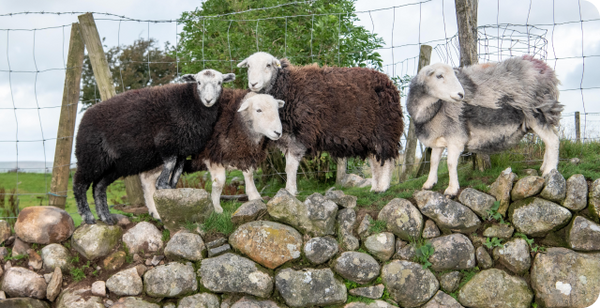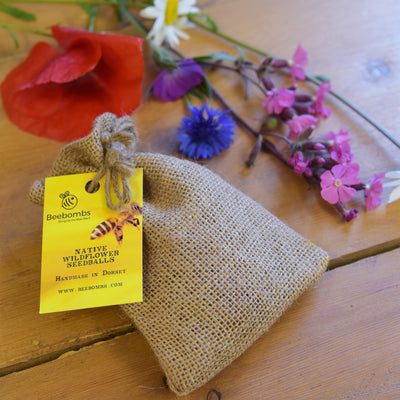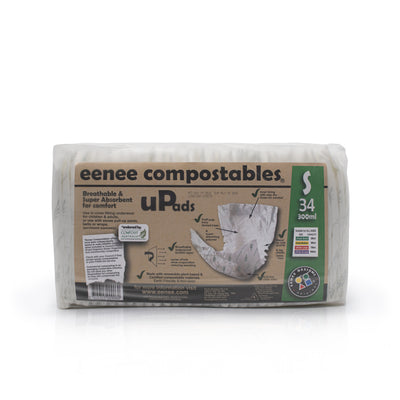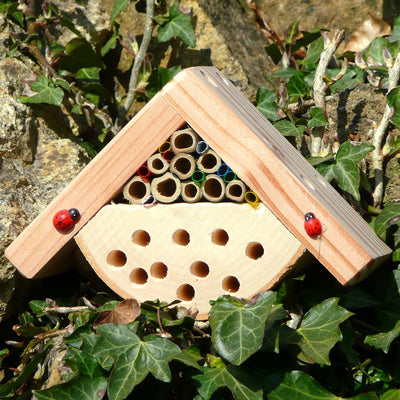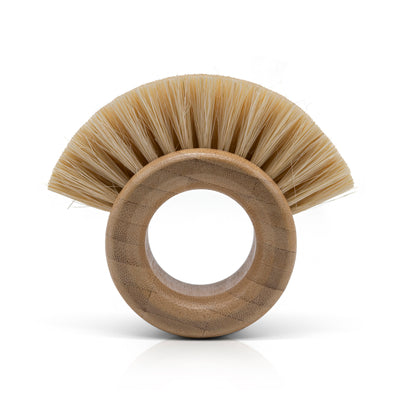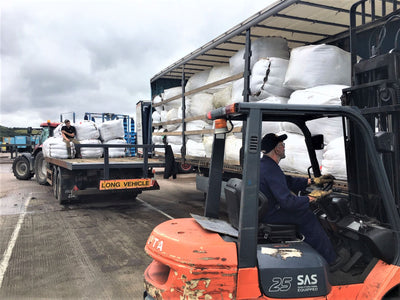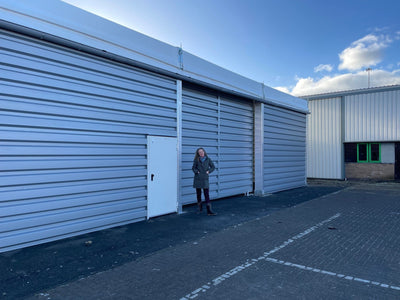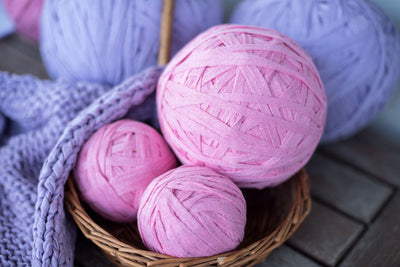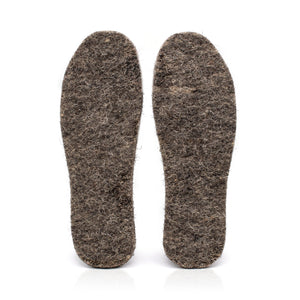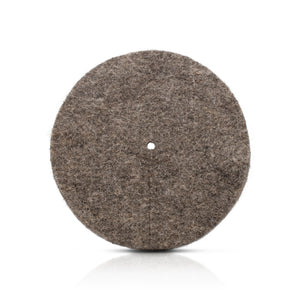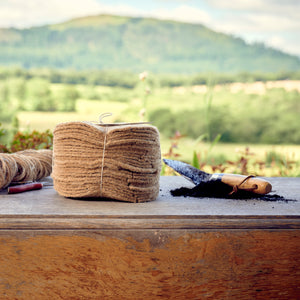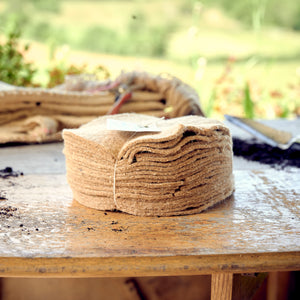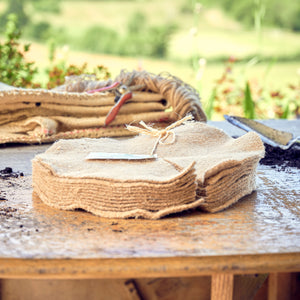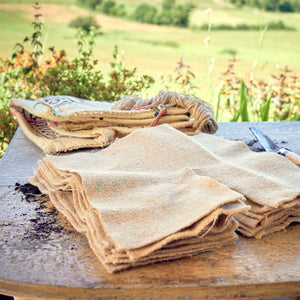Luxurious, unique, and completely ethical, this 100% British wool rope is just THE alternative to synthetic rope you've been looking for. Every inch of this British sheep's wool rope has been carefully handmade in Yorkshire, using artisan techniques and years of experience. There are no glues, binders, or synthetics in this rope, it's 100% natural and simply made of wool.
Every rope is made from wool sourced directly from farms local to Yorkshire, in fact, all of the wool used to make this wool rope comes from an area spanning approximately 60 miles. This means this rope is an excellent low-carbon alternative to the products you'd find in your local DIY store. It gets even better though, each farm is known personally to the manufacturer, this means all of the wool is completely traceable, right back to the farm and flock of sheep it came from. This means we can guarantee that sheep are treated well and that the farms use ethical practices in line with British standards!
Every centimetre of this rope is made entirely of sheep's wool, it's been carefully produced to ensure it's not only functional but completely natural and sustainable too. It is a 100% plastic-free product, and a simple swap to implement if you're trying to reduce your plastic consumption.
But, what can I use wool rope for?
Well...pretty much anything you'd use a standard rope for. Not only is it chunky, multipurpose, and functional, it's lovely in hand too - its really an excellent like-for-like eco-friendly swap to make - we think you'll notice the difference in a good way!
So, the specifics of this rope are the following:
Tensile Strength details:
- Mean tensile strength at break (kg) - 117.6
- Mean tensile strength at break (kN) - 1.154
- Mean elongation at break (%) - 57.5
So, anything you would use a rope of this calibre for, you can use this 100% natural sheep's wool for rope too! This includes things like tying items together, building in the garden, and winching and lowering things during a DIY project. The list of uses is really endless when it comes to rope. Swap it for your current rope that's in your backpack - your: 'in case I need it rope' (provided it meets the criteria you need of course - make sure you double check!!).
As this rope is made entirely of wool, it is naturally insulating, as well as hygroscopic - meaning it could also have wonderful insulating applications too. It would work wonderfully for lining cracks surrounding outbuilding windows and doors, or in areas where our insulating wool tape might just not be the ticket. It's nice and chunky and very malleable, so it would work wonderfully for odd-shaped, wiggly cracks as well!
This wool rope is also incredibly high quality and would be perfectly suited to crafting and creative projects, it is a beautiful hue of undyed grey, it splices wonderfully and we think looks beautiful when coiled or swirled. Why not think about producing some wool art or hanging decorations using this high-quality luxury rope? Or perhaps get creative and weave something for your wall.
Please do note, that this wool rope IS NOT moth proofed, so this would be something we'd advise you to take into account when using it for these applications - perhaps think about pairing it with some lavender deterrent or similar to help keep your rope in tip-top condition!
So, what's the problem with plastic rope?
Well simply put, synthetic ropes contain plastic. This means not only do they require lots of energy to produce, but they also shed an enormous amount of plastic microfibres which are entering the environment and food chain at an alarming rate! It's day-to-day activities such as gardening, and doing the laundry ( which you can make more eco-friendly by using a microfibre filter), that contribute to this huge environmental issue. In activities such as sailing and fishing, waste synthetic rope and fishing nets end up dumped into the ocean, damaging precious wildlife and ecosystems - not to mention washing up on shores around the world.
Traditionally ropes, twines, and strings have always been made using natural fibres, in the years before plastics ropes such as this would have been produced using wools of all different types, and natural plant fibres such as jute and flax. Natural fibres have withstood the test of time for millennia so with this in mind we feel it's time to take a leaf out of the history books and move back to natural plant fibres where possible. Making the choice to be more conscious about what we use and consume is essential to ensure we protect our planet and the environments surrounding us, so why not make a simple switch to plastic free?
Luxurious, unique, and completely ethical, this 100% British wool rope is just THE alternative to synthetic rope you've been looking for. Every inch of this British sheep's wool rope has been carefully handmade in Yorkshire, using artisan techniques and years of experience. There are no glues, binders, or synthetics in this rope, it's 100% natural and simply made of wool.
Every rope is made from wool sourced directly from farms local to Yorkshire, in fact, all of the wool used to make this wool rope comes from an area spanning approximately 60 miles. This means this rope is an excellent low-carbon alternative to the products you'd find in your local DIY store. It gets even better though, each farm is known personally to the manufacturer, this means all of the wool is completely traceable, right back to the farm and flock of sheep it came from. This means we can guarantee that sheep are treated well and that the farms use ethical practices in line with British standards!
Every centimetre of this rope is made entirely of sheep's wool, it's been carefully produced to ensure it's not only functional but completely natural and sustainable too. It is a 100% plastic-free product, and a simple swap to implement if you're trying to reduce your plastic consumption.
But, what can I use wool rope for?
Well...pretty much anything you'd use a standard rope for. Not only is it chunky, multipurpose, and functional, it's lovely in hand too - its really an excellent like-for-like eco-friendly swap to make - we think you'll notice the difference in a good way!
So, the specifics of this rope are the following:
Tensile Strength details:
- Mean tensile strength at break (kg) - 117.6
- Mean tensile strength at break (kN) - 1.154
- Mean elongation at break (%) - 57.5
So, anything you would use a rope of this calibre for, you can use this 100% natural sheep's wool for rope too! This includes things like tying items together, building in the garden, and winching and lowering things during a DIY project. The list of uses is really endless when it comes to rope. Swap it for your current rope that's in your backpack - your: 'in case I need it rope' (provided it meets the criteria you need of course - make sure you double check!!).
As this rope is made entirely of wool, it is naturally insulating, as well as hygroscopic - meaning it could also have wonderful insulating applications too. It would work wonderfully for lining cracks surrounding outbuilding windows and doors, or in areas where our insulating wool tape might just not be the ticket. It's nice and chunky and very malleable, so it would work wonderfully for odd-shaped, wiggly cracks as well!
This wool rope is also incredibly high quality and would be perfectly suited to crafting and creative projects, it is a beautiful hue of undyed grey, it splices wonderfully and we think looks beautiful when coiled or swirled. Why not think about producing some wool art or hanging decorations using this high-quality luxury rope? Or perhaps get creative and weave something for your wall.
Please do note, that this wool rope IS NOT moth proofed, so this would be something we'd advise you to take into account when using it for these applications - perhaps think about pairing it with some lavender deterrent or similar to help keep your rope in tip-top condition!
So, what's the problem with plastic rope?
Well simply put, synthetic ropes contain plastic. This means not only do they require lots of energy to produce, but they also shed an enormous amount of plastic microfibres which are entering the environment and food chain at an alarming rate! It's day-to-day activities such as gardening, and doing the laundry ( which you can make more eco-friendly by using a microfibre filter), that contribute to this huge environmental issue. In activities such as sailing and fishing, waste synthetic rope and fishing nets end up dumped into the ocean, damaging precious wildlife and ecosystems - not to mention washing up on shores around the world.
Traditionally ropes, twines, and strings have always been made using natural fibres, in the years before plastics ropes such as this would have been produced using wools of all different types, and natural plant fibres such as jute and flax. Natural fibres have withstood the test of time for millennia so with this in mind we feel it's time to take a leaf out of the history books and move back to natural plant fibres where possible. Making the choice to be more conscious about what we use and consume is essential to ensure we protect our planet and the environments surrounding us, so why not make a simple switch to plastic free?





